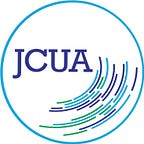How white Jews can respond to systemic racism, guided by three Jewish principles
By Rabbi Bruce Elder
The past few weeks have been trying for our country. We have been reminded, once again, of the pain white America has inflicted unabated on African Americans for the past 400 years.
As outraged as we might be at George Floyd’s murder, white Jews must respond in a way that centers not our emotional response, but the voices and demands of the African American community.
We should respond in a way that is guided by three basic Jewish principles:
1) Shema (Listen): For too long, African American voices have been muffled by those of us who think we know what racism is and how it needs to be addressed. White America never takes the chance to listen fully, without comment or judgement, to Black narratives, stories, and perhaps most importantly, assessments of their continued oppression at our hands and in our names.
The white Jewish community’s first reaction to the current unrest, then, should be simply to listen and learn. What are young Black activists saying, and for what are they asking? What are Black educators teaching about history, culture, and the human experience? What are Black pundits and politicians offering as ideas to end the 400 years of oppression that white America has thrust upon them? How, in their minds, do we end white supremacy?
2) Tochachah (Rebuke): Leviticus 19:17 commands: You shall surely rebuke! Jewish tradition demands that we speak up when we see injustices unfolding before us. When we add our calls to those of people who are being systematically silenced, we are living the value of tochachah in its truest sense — we are being righteous. If we do it, however, without first accepting rebuke, we are being self-righteous. Dr. Martin Luther King, Jr., in his Letter from a Birmingham Jail, wrote, “… the Negro’s great stumbling block in his stride toward freedom is not the White Citizen’s Counciler or the Ku Klux Klanner, but the white moderate …”
Taking Dr. King’s words to heart, the Jewish community should ally itself with the Movement for Black Lives, to be sure. But we should not protest in the streets until we first look inside ourselves. Last month, more than 40 members of the greater Chicago Jewish community participated in a racial justice training for Chicago-area congregations, hosted by the Jewish Council on Urban Affairs. We learned about how our own insecurities, defensiveness, and sense of otherness often drive our unconscious bias against Black people.
And we learned to start talking about white supremacy instead of racism. As Elizabeth “Betita” Martinez explains in her What is White Supremacy?: “The most common mistake people make when they talk about racism is to think it is a collection of prejudices and individual acts of discrimination.” White supremacy, on the other hand, is a societal orientation geared toward keeping white people in power institutionally, systemically, and politically. Martinez continues, “The term White Supremacy gives white people a clear choice of supporting or opposing a system rather than getting bogged down in claims to be anti‐racist (or not) in their personal behavior.” All of us white Americans must work to dismantle the structures of white supremacy that have allowed us to thrive on the backs and at the expense of African Americans, just as each of us must come to terms with our own racist beliefs and predispositions.
3) Tzedakah (Righteousness): Tzedakah is not charity, though charity is part of it. Rather, it is a worldview that expects those with material means to support movements towards equity for those who struggle to make ends meet. Maimonides tells us that the greatest act of tzedakah is to help people become self-sufficient. It is time for the Jewish community to support locally owned Black businesses that are struggling under the crushing economic impact of the COVID pandemic and to advocate for government policies that will finally be fair and equitable to the African American community.
These ideals are not the solution to the problems of white supremacy in our communities. They are a step in the right direction, perhaps. Our society has work to do. We have work to do. As Pirke Avot 1:14 exhorts:
If not now, when?
Rabbi Bruce Elder is the rabbi for Congregation Hakafa. He graduated from Indiana University, Phi Beta Kappa, with a bachelor’s degree in History and Psychology with certification in Jewish Studies. Upon graduation, Rabbi Elder moved to Chicago where he worked for JCUA. His work at the JCUA led him to become a rabbi. He entered Hebrew Union College, the Reform movement’s theological seminary, and was ordained in 1996. He served as an assistant rabbi for a congregation in Cherry Hill, New Jersey before moving back to Chicago in 1999. Rabbi Elder served as associate rabbi of Congregation Hakafa in Glencoe, IL and again on the staff of the JCUA until assuming the position of Rabbi at Hakafa in 2002. He currently serves as the chair of the Glencoe Clergy Association and is President of the Board of the JCUA. Rabbi Elder lives in Highland Park, IL with his wife, Rona, and their three sons, Joshua, Noah, and Eli.
